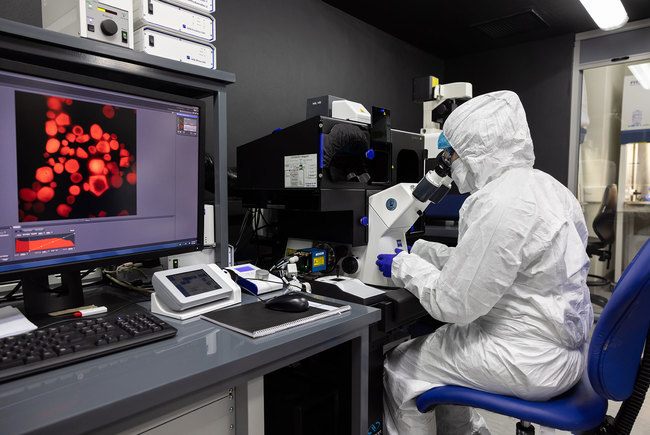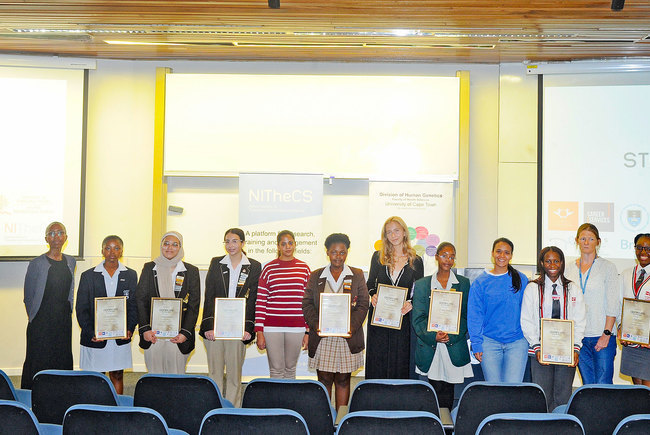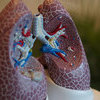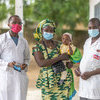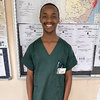COVID-19: not that heavy on the heart
19 March 2021 | Story Niémah Davids. Photo Getty Images. Read time 6 min.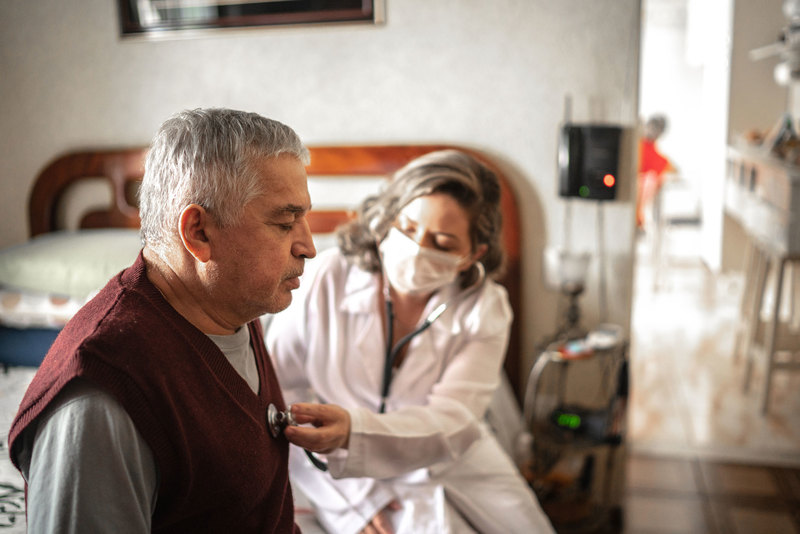
It is widely known that severe COVID-19 can adversely affect the heart and cardiovascular system long term. The University of Cape Town’s (UCT) Professor Mpiko Ntsekhe shared some insights into understanding the virusʼs impact on this vital organ.
Professor Ntsekhe is the chair of the Division of Cardiology at UCT, based at Groote Schuur Hospital. During a virtual interview, he highlighted long-term COVID-19ʼs (long COVID) effect on the heart, and the picture is not as bleak as some may think.
“We know that with COVID-19 the organ most severely and commonly affected [by the disease] is the lungs. However, we also know that COVID-19 is capable of spreading throughout the body to multiple organs, including the heart,” he said.
“The vast majority of patients with severe COVID-19 will not present with evidence of significant damage to the heart.”
“Fortunately, this does not happen very frequently, and the vast majority of patients with severe COVID-19 will not present with evidence of significant damage to the heart.”
Niémah Davids (ND): In cases where COVID-19 does affect the heart, how does it manifest?
Mpiko Ntsekhe (MN): When thinking about how COVID-19 affects the heart, it’s useful to think of two groups of people: those with long-standing heart conditions (present before COVID-19) and those with healthy hearts at the time of infection.
In those patients with established heart disease, such as a history of heart attacks, heart failure, valve disease and hypertensive heart disease, the risk of developing severe COVID-19 and dying from it is much higher than those without heart disease. One of the reasons for this is because an impaired cardiovascular system is not able to cope with the physiological burden and demand COVID-19 imposes on the body and on the heart.
For patients with an abnormal heart who contract COVID-19, it’s like asking them to run 10 km or more, and usually they can only cope with 1 km. It places the heart under significant additional strain.
ND: Are COVID-19-positive patients more at risk of having heart attacks?
MN: In some cases COVID-19 can trigger heart attacks, especially in patients who have suffered heart attacks before, and/or those with known fatty plaques (a build-up of fats, cholesterol and other abnormal substances) in their coronary arteries.
“During the two COVID-19 infection waves in the country, we looked after fewer than a handful of patients with severe myocarditis and heart failure as a result of the virus.”
COVID-19 can also precipitate heart failure in those with a history of heart muscle disease. It may also cause the heart to beat abnormally fast, slow, or irregularly in those with heart rhythm disorders. The vast majority of patients with COVID-19 who we have taken care of at Groote Schuur Hospital’s Cardiology Unit in the past year have fallen into this category.
ND: In patients who don’t have a history of heart disease, how does COVID-19 affect the heart?
MN: In this instance, the virus can cause injury to heart muscle cells (myocardial injury) without damaging the heart muscle itself. Approximately 5% of hospitalised patients with severe COVID-19 present with evidence of this phenomenon. Thankfully, for the majority of patients with myocardial injury as a result of severe COVID-19, the cardiac cell injury is detectable only by sensitive blood tests, without enough damage to cause any detectable cardiovascular dysfunction.
ND: Aside from myocardial injury, are there other ways COVID-19 can affect the heart?
MN: In a very rare subset of people, the virus can cause active inflammation and necrosis (death) of the heart muscle and lead to a disorder called myocarditis. If a large part of the heart is affected by myocarditis, it can lead to heart failure and in some cases permanent heart damage.
During the two COVID-19 infection waves in the country, we looked after fewer than a handful of patients with severe myocarditis and heart failure as a result of the virus.
ND: What are some of the main long-term effects on the heart?
MN: It is important to emphasise that at this stage, impairment of the heart as a result of COVID-19 infection after patients have been discharged from hospital or recovered from mild or asymptomatic infection is very, very rare.
“A growing number of patients with long COVID and their doctors report inappropriately fast heart-rate responses to exercise, sometimes associated with palpitations.”
Having said that, a growing number of patients with long COVID and their doctors report inappropriately fast heart-rate responses to exercise, sometimes associated with palpitations. Although most formal tests of the heart are normal in these patients, speculation is that COVID-19 may affect the autonomic nervous system, which regulates things like heart rate, breathing rate, sweating and bowel function. This remains to be proven and is the subject of ongoing research.
ND: Have you started a formal study to track COVID-19 survivors in order to understand their challenges after recovery?
MN: Because long-term cardiac COVID-19 has been rather infrequent, we’ve not yet commenced a formal study to delve into the subject further. However, the cardiac clinic at Groote Schuur Hospital is a referral centre where patients who are concerned about cardiac COVID-19 are regularly evaluated.
“COVID-19: not that heavy on the heart” is among a series of articles dedicated to long COVID that will be published on UCT News in the coming weeks.
 This work is licensed under a Creative Commons Attribution-NoDerivatives 4.0 International License.
This work is licensed under a Creative Commons Attribution-NoDerivatives 4.0 International License.
Please view the republishing articles page for more information.
Faculty of Health Science News











